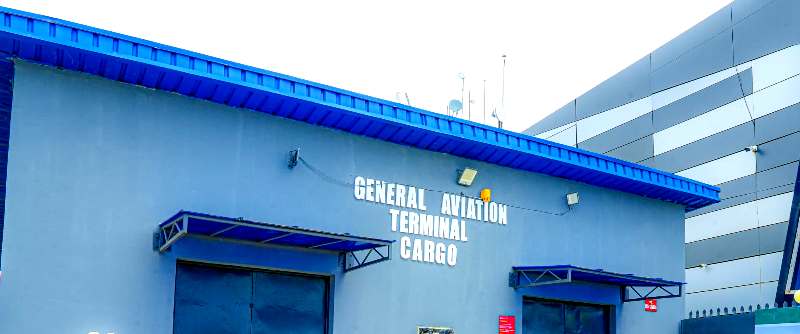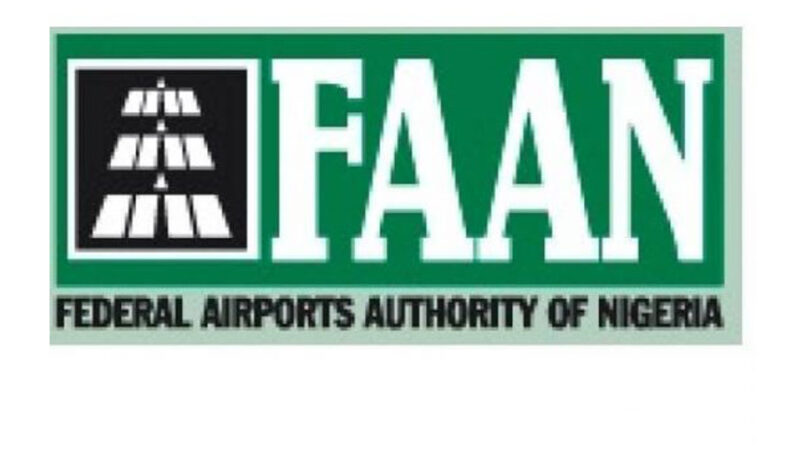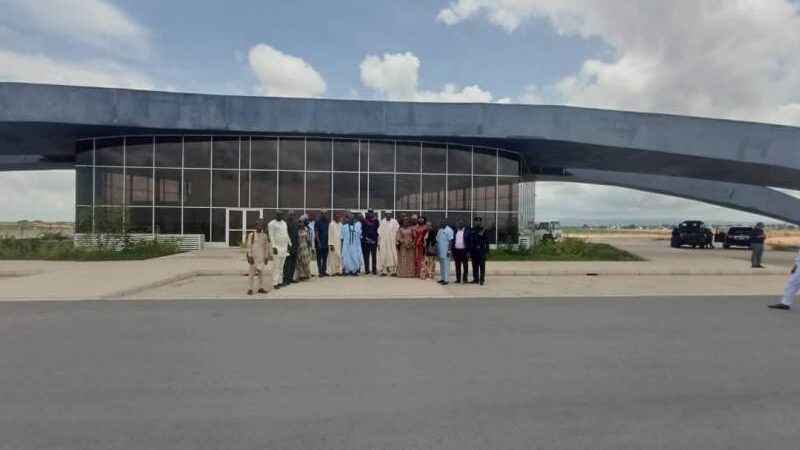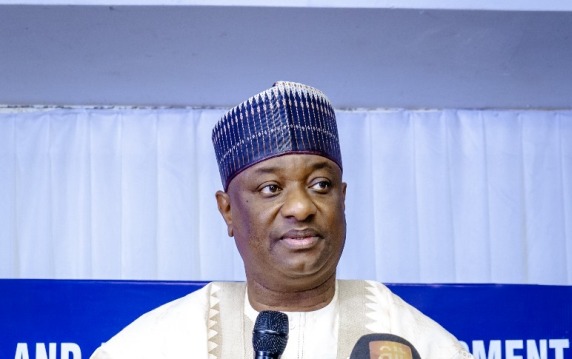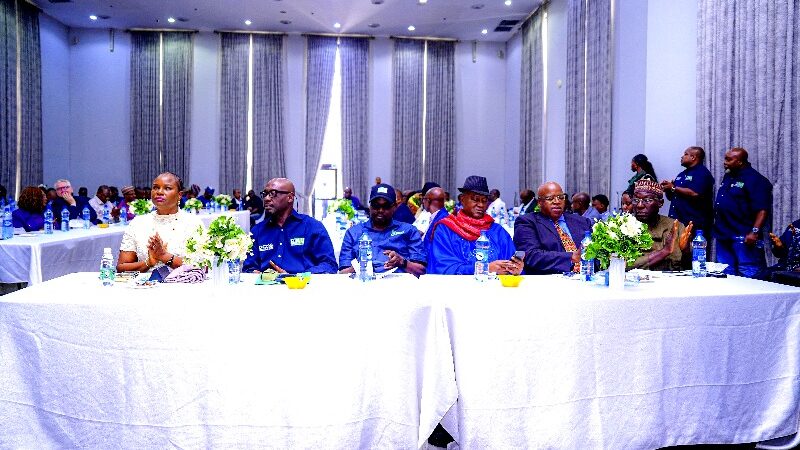SAATM: Airline Operators In Southern Africa Advocate A Level Playing Field
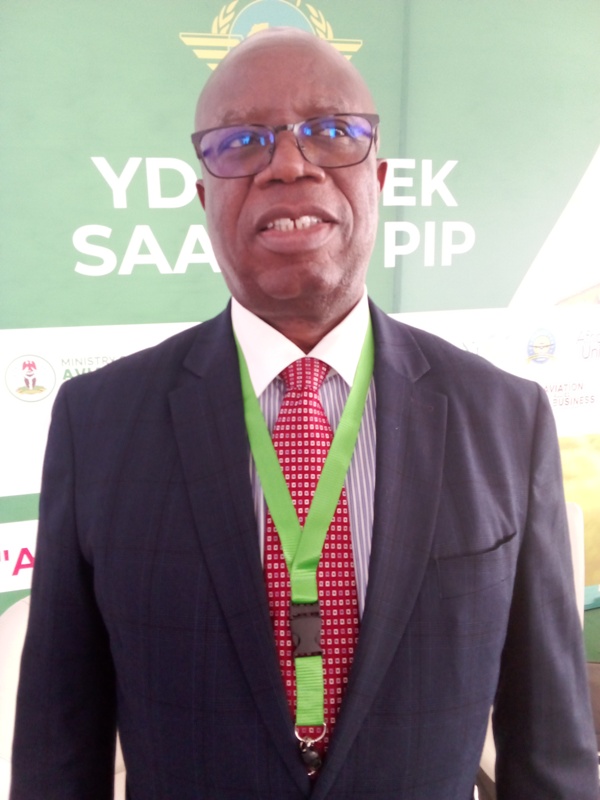
MR. AERON MUNETSI, President, Airlines Association of Southern Africa (AASA) in this interview with AVIATION MONITOR during the 2023 YD Week held in Abuja, Nigeria, speaks on the involvement of southern African operators in the YD implementation, challenges, operating costs and the brain drain issue.
Q: WHERE IS AASA IN THE YD IMPLEMENTATION DRIVE?
A: The Airlines Association of Southern Africa (AASA) represents the 16 members States of the Southern African Development Community (SADC). All the airlines, irrespective of ownership, as long as they are registered in those countries, are allowed to join us because we are a voluntary body but we represent the interest of the aviation industry and especially our airlines. So, with that background in mind, you understand that we are an integral part of the Single African Air Transport Market (SAATM) from word go. South Africa, Zimbabwe, Botswana, Eswatini were part of the 18 member States of the African Union (AU) that signed up in 2018. By virtue of that, we have already developed the impetus and momentum to be able to implement the SAATM and through that, we were able to encourage and give motivation to other countries to sign up. So, from the initial four, we were able to increase the number of countries in our region that have signed up. With that in mind, you understand that we automatically have an advantage for our member airlines who then become immediate beneficiaries of the benefits of SAATM. What are those benefits? They include but are not limited to the 5th Freedom traffic rights, fair competition, enabling environment, enhanced safety and security as well as a better operating environment in terms of infrastructure required by the airlines for them to be able to effectively and efficiently operate the airlines. So, by virtue of that, we are able to key into most of the discussions we have heard so far and we are in alignment because our home country, South Africa is a member of the Pilot Implementation Programme (PIP) and our airlines are also included in the PIP.
Q: SOME PLAYERS TALK ABOUT CHALLENGES IN IMPLEMENTATION. WHAT IS YOUR PERSPECTIVE ON THIS?
A: One of the biggest challenges especially in relation to SAATM is that we are facing a situation where the playing field is not level. So, when our airlines are applying for Foreign Operating Permits (FOPs) in other countries, they go through ropes. The process is so long, elongated, convoluted, and sometimes, confusing. Yet, our countries in the SADEC Region don’t do that. They actually conform with the ICAO Standards & Operating Practices (SARPs) of affording FOP to other airlines. So, we find that our airlines are actually at a disadvantage. I will give you an example. When an airline from Southern Africa applies for a FOP in one country on the continent, they are charged US$8,000 for a FOP that is valid for 12 months. When the same country as an airline wants to operate to Southern Africa, that airline pays 500Rand, which is equivalent of US$80. Where is the parity here between US$80 and US$8000? Not only that, our airlines are told these countries need to send their inspectors to South Africa to come and inspect the facilities of the airline that is to apply for the FOP at the cost of the airline. Yet, we adhere to the ICAO SARPs and we accept the paperwork that has been presented to the oversight authorities in the AASA on the other side. That is our biggest challenge. The second one is obviously the misunderstanding or misalignment of what exactly SAATM means. To some, SAATM means you are going to open up your market and your airlines are going to be uprooted into non-existence but that is not the case. I am trying very hard to make sure that we continuously educate, especially the countries that have not signed up, or the ones that have signed up but have not yet submitted their MOIs, to say: “get to the next level.” Understand that in the scheme of better things, this is the best opportunity even for your small airlines to actually benefit because the more airlines come into your country, the more passengers come into your country, the more your airline is going to be able to at least, take part of that traffic segment and circulate in the countries within the region. So, that is the second thing we find so abnormal; the protectionism we see from other States. They are just protecting their national carriers, or even their non-national carriers from perceived danger that is actually not there.
Q: SO, WHAT ARE THE PRIORITIES OF AASA NOW?
A: We have three main priorities. The first one is to enhance connectivity. We need to be able to say our airlines can fly anywhere on the African continent with the number of frequencies, amount of capacities without restriction. Connectivity is our first priority. The second one is obviously safety and security. We cannot negotiate on safety and security. We want all our member airlines or our member countries in Africa to be able to exist, claim the effective implementation of the Abuja safety standards minimum of 72%. That is what our priority is. So, in as much as we are working with airlines, we are also working with our regulators. We are working with our service providers to make sure that they are aware of the requirements of our member airlines in terms of safety and security. The third one is a very important one because it is multi-faceted. It is cost containment. We want to be able to contain the current cost so that our airlines can operate effectively, efficiently and cost effectively. By so doing, we are able to stimulate demand and grow their business and grow the pie for everybody so nobody is going to complain that the bigger one or the smaller one is taking higher share. By having effective cost containment, we are going to open up and aggregate the pie for everybody.
Q: THERE IS THIS LINGERING ISSUE OF HIGH OPERATING COSTS AND THE INPUT OF AVIATION FUEL. WHAT IS YOUR ADVICE ON HOW TO TACKLE IT?
A: l think what we really need to focus on is that as much as the cost of fuel is a big issue, we need to focus on the security of supply. There have been times we heard that an airline is going to cancel a particular flight because there is no fuel in the destination where they are going to. For me, that is abominable. For us as Africa, we have about five or seven countries that produce oil. By now, we should have capacity to be able to refine oil and be able to distribute JetA1 fuel across the width and breadth of the countries.
Q: WHAT IS YOUR POSITION ON THE ISSUE OF BRAIN DRAIN IN AFRICA?
A: For me, I think it is a blessing in disguise., If you are an airline and your most important talent or workforce skill exits the door, it will hurt you; no doubt about that. However, think about it this way. Because you are aware that your trained skilled manpower is under spotlight from other competing employers and they are likely to come and recruit them, you enhance your training capabilities so that you train enough staff members to be able to do the job in the event that this one leaves. That is number one. Secondly, you enhance your capability for retainment; to be able to retain your staff. That retainment of staff is very important because it is not necessarily only about money. It is about the facilities, the services and the environment which you provide for staff members to be able to say we want to continue to work in this environment. I give you an example. When the staff members say they want to work from home and you give them the facility and capacity to be able to work from home, they will not leave simply because somebody is offering them more money to work from the office. So, for me, the brain drain is actually a brain claim for us. Once we can claim that we have been able to train our own African workforce that is now competing globally and positioning themselves globally and being able to command some of the most highly skilled and desired jobs globally, in a way, I think it is a win-win.AM

